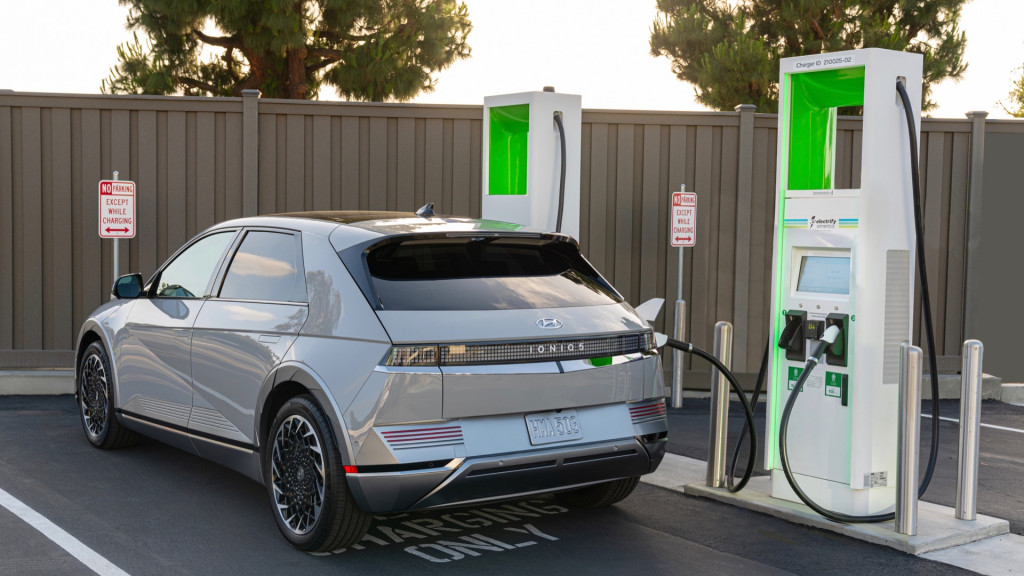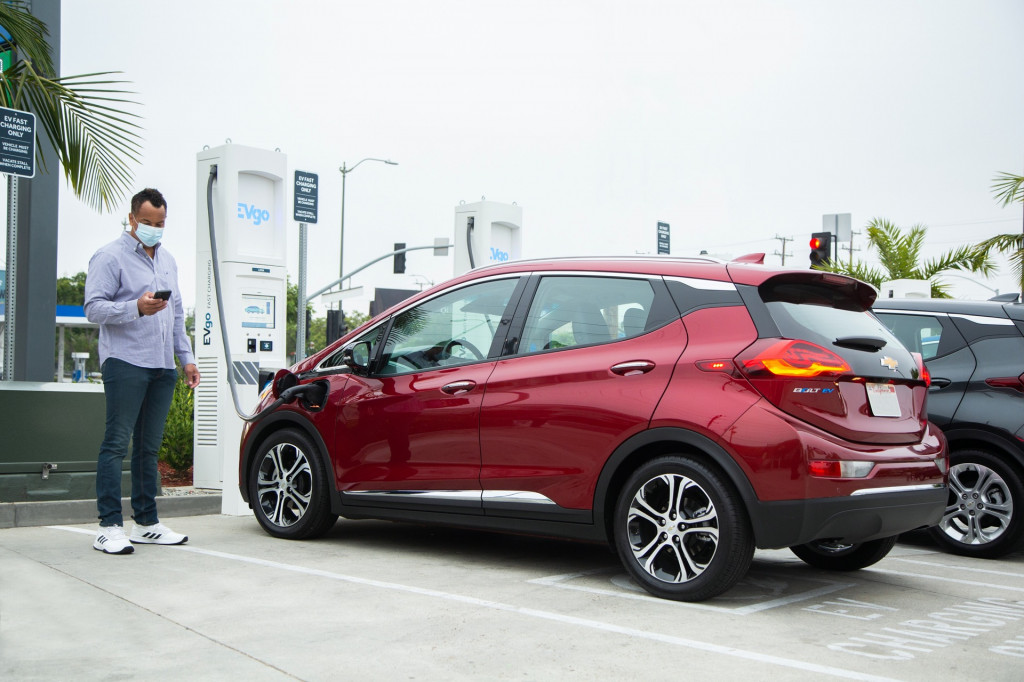A Kansas House bill calls for a tax on public EV charging—but not home charging.
The proposed tax of 3 cents per kilowatt-hour would go to a Kansas highway repair fund reliant on revenue, according to the Kansas Reflector, but it could force EV drivers to pay more than other drivers.
Any tax on public charging would effectively be "double taxation," one EV contemplator told the Reflector, because EV owners already pay higher registration fees. The Kansas legislature in 2019 passed a measure upping the fee to $100 for EVs, compared to $30 for internal-combustion vehicles, arguing that it made up for EV drivers avoiding the state's fuel tax of 24 cents per gallon.

2022 Hyundai IONIQ 5 at Electrify America DC fast-charging station
Taxing public charging also amounts to a double standard for those who live in an apartment or park on the street and rely on public infrastructure. The proposed tax reportedly does not apply to drivers who plug in at home.
How to tax EVs for road use is a hotly debated topic, as of late, as states aim to restructure their gas tax policy, in anticipation of gasoline fleets declining. One of those solutions is an "electric fuel" tax for EVs.

GM and EVgo expand major-metro fast charging
Kansas in particular has a history with proposed EV taxes, though, becoming one of the first states to consider taxing electric cars with a 2012 bill, also based on the argument that the gas tax would eventually become insufficient to fund road maintenance.
But Kansas is also where Panasonic last year decided to build what it then claimed to be the largest battery plant in the world (by area). Panasonic's first in the U.S. outside of its Tesla partnership, the $4 billion plant is positioned to supply EV batteries for other automakers in addition to Tesla.












